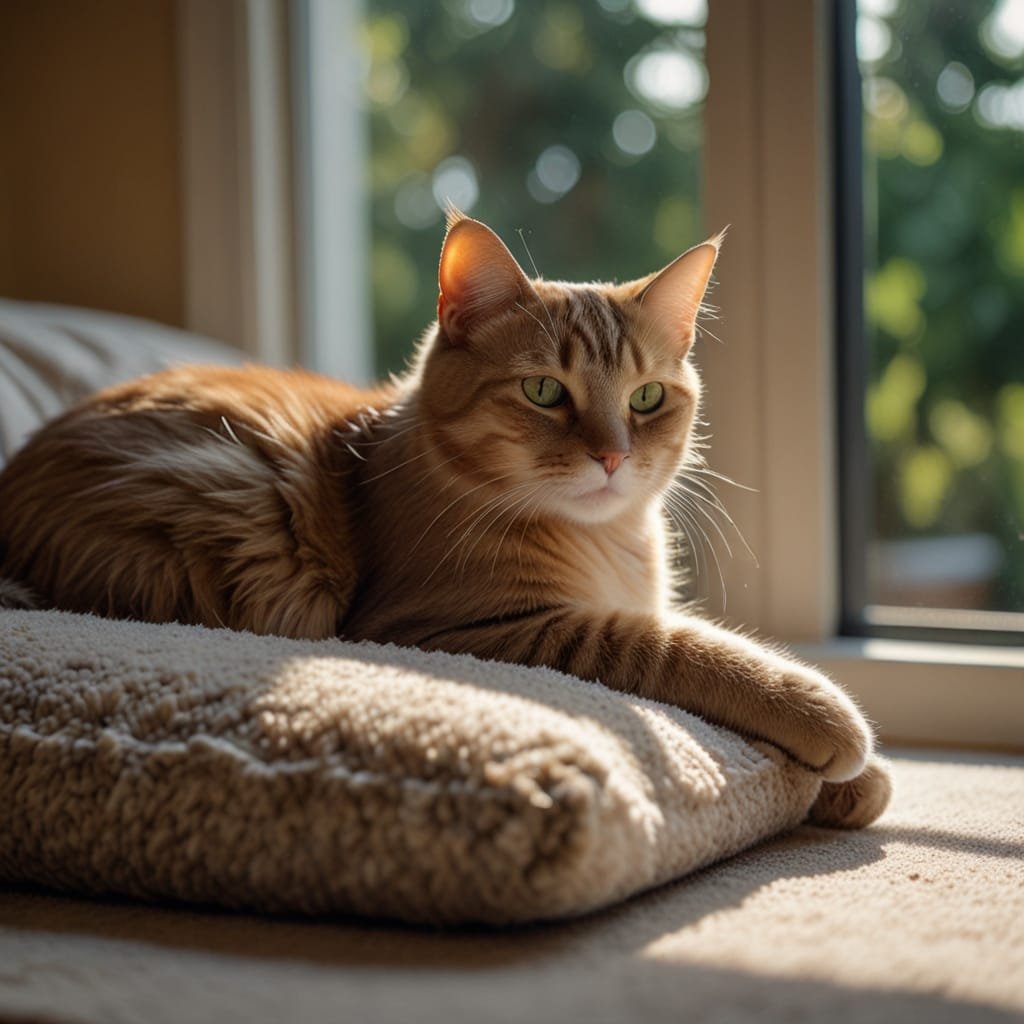Pet Care
Caring for Your Senior Cat: Ensuring a Happy, Healthy Life in Their Golden Years
Cats are beloved companions, and as they age, they become even more special. Senior cats, typically considered to be 7 years and older, require adjustments in their care to accommodate their changing needs. With proper attention and love, you can ensure your feline friend enjoys a comfortable, healthy, and happy life in their golden years.
Here’s everything you need to know about caring for a senior-aged cat:
1. Regular Veterinary Checkups
As cats age, their risk of developing health issues increases. Conditions such as arthritis, kidney disease, diabetes, and dental problems are more common in senior cats.
What to Do:
- Schedule veterinary visits at least twice a year.
- Ask your vet to perform a full physical exam, including bloodwork, to catch early signs of age-related illnesses.
- Discuss any changes in behavior, appetite, or energy levels with your vet.
Early detection can make a significant difference in managing your cat’s health effectively.
2. Adjust Their Diet
Senior cats benefit from diets tailored to their changing nutritional needs. They may need fewer calories to avoid weight gain, but high-quality protein and nutrients to maintain muscle mass and overall health.
Tips for Feeding a Senior Cat:
- Look for cat food labeled for senior cats, as these are formulated to meet their needs.
- Ensure they’re hydrated—wet food can help increase water intake, which is crucial for kidney health.
- Consider supplements like omega-3 fatty acids for joint health or taurine for heart health (consult your vet first).
3. Create a Senior-Friendly Home Environment
As cats age, they may face reduced mobility, making it harder for them to access favorite spots or maintain their routines.
Ways to Help:
- Provide soft, warm, and easily accessible resting places.
- Add ramps or steps to help them reach higher areas.
- Use a litter box with lower sides for easier access.
A comfortable and safe environment can reduce stress and improve their quality of life.
4. Keep Them Active
While senior cats may not have the same energy levels as younger ones, they still need regular physical and mental stimulation to stay healthy and engaged.
How to Encourage Activity:
- Play with toys like feather wands, laser pointers, or gentle puzzle feeders.
- Introduce shorter, low-intensity play sessions to suit their energy levels.
- Provide scratching posts to keep their claws healthy and their minds active.
5. Monitor Their Behavior
Changes in behavior can be an early indicator of health issues. For instance, hiding, decreased grooming, or increased vocalization may signal discomfort or illness.
What to Watch For:
- Reduced appetite or weight loss
- Difficulty jumping or moving
- Changes in grooming habits, leading to matted fur
- Increased drinking or urination, which can indicate kidney or thyroid problems
If you notice any of these signs, consult your vet promptly.
6. Provide Lots of Love and Attention
Senior cats thrive on love and companionship. Spend quality time with your cat, offering gentle affection, brushing, and cuddles (if they enjoy them). Pay attention to their mood and energy, and adjust your interactions accordingly.
7. Manage Their Dental Health
Dental issues are common in senior cats and can lead to pain, difficulty eating, and even systemic health problems.
How to Help:
- Brush their teeth regularly with a vet-approved toothpaste.
- Provide dental treats or toys designed to reduce plaque.
- Schedule professional dental cleanings as recommended by your vet.
8. Understand the Aging Process
Aging is a natural process, and some changes in your senior cat are normal. They may sleep more, play less, or prefer quieter environments. Respect their preferences and make adjustments to ensure they feel secure and comfortable.
Final Thoughts
Caring for a senior cat is a rewarding experience that deepens the bond between you and your furry friend. By providing attentive care, a balanced diet, a comfortable environment, and regular vet checkups, you can help your cat live their best life in their later years.
For more tips and resources on senior cat care, visit the Pet Paws Club blog regularly. Share your senior cat stories with us—we’d love to hear about the special moments you share! 🐾 Explore More: Check out our full collection of pet care articles here.

